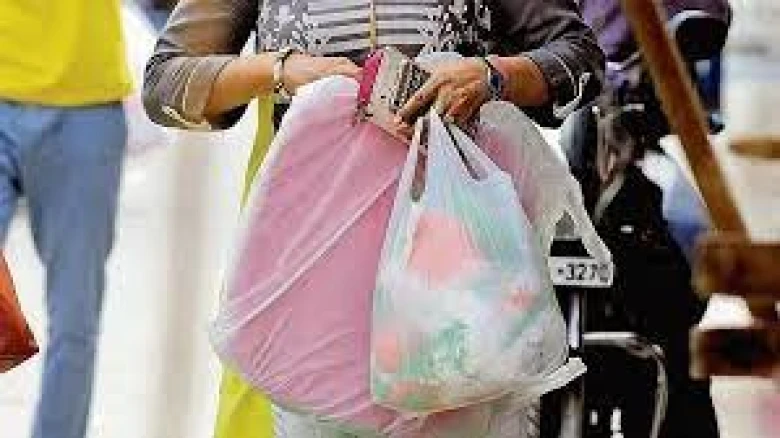Regional

Only 3%, or 200,000 metric tonnes, of the total amount of plastics consumed in the nation are single-use plastics, according to Vijay Kumar, president of the Karnataka State Polymer Association.
Digital Desk: Between
September 2019 and June 2022, the Bruhat Bengaluru Mahanagara Palike (BBMP)
seized nearly 7,300 cases of single-use plastic (SUP), valued at 1.14 crore,
according to officials with knowledge of the situation.
The crackdown, according to
BBMP officials, is a "continuous process" being carried out
throughout the state capital, which is home to over 12 million people and is
infamous for having some of the worst recycling facilities because the majority
of this plastic ends up in water bodies or on street corners.
"Anything considered
single-use (plastic) is prohibited. Dr. Trilok Chandra, the special
commissioner for health at BBMP, said there is no quantification in the
traditional sense.
Chandra stated that the
government organization is focusing on both the producers of single-use
plastics and all businesses that use them.
The BBMP has also taken the
lead in a campaign to stop plastics from other states from entering Karnataka.
Despite the product's ban
since 2016, usage of single-use plastic increased during the Covid-19 pandemic,
when restaurants and other businesses were compelled to rely on it to serve
customers out of fear that they would have to share steel cutlery and plates.
On July 1, the Union
government implemented a ban on single-use plastic products, such as wrapping
or packaging films, plastic cutlery, straws, and plastic sticks for balloons
and earbuds.
According to a statement
released by the government on June 28, 19 items on this list are prohibited.
These include stirrers, plastic plates, cups, and glasses, as well as cutlery
such as forks, spoons, knives, straws, trays, wrapping or packaging films
around candy boxes, balloon sticks made of plastic, plastic sticks for
balloons, plastic flags, candy sticks, and ice-cream sticks.
Only 3%, or 200,000 metric
tonnes, of the total amount of plastics consumed in the nation are single-use
plastics, according to Vijay Kumar, president of the Karnataka State Polymer
Association.
According to him, India's
per-capita plastic consumption will likely rise by 20–23% in the near future
from its current level of 11–13 kg, HT reported on July 5.
The civic organization has
stepped up implementation throughout the city following the announcement by the
Indian government that all single-use plastic items would be completely banned
as of July 1. The BBMP reportedly seized 122.3 kg of single-use plastic from 98
locations in the city on Saturday alone, and a fine of 77,100 was also collected
that day. Manufacturers, retailers, and small-business vendors who depend on
single-use plastic for their daily business are among the offenders.
Leave A Comment